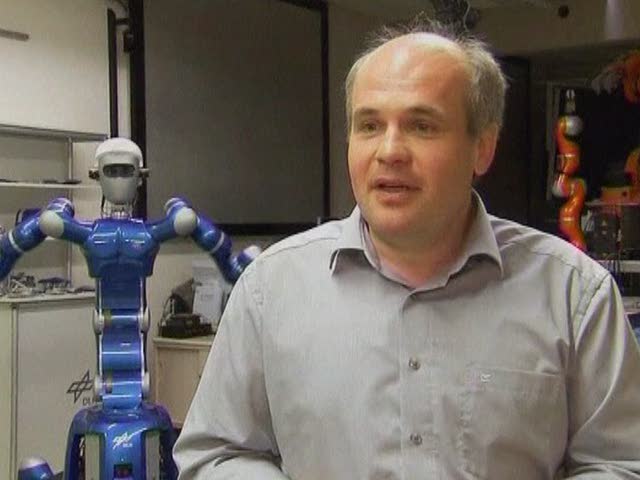Handheld devices, once solely the province of CEOs needing a small electronic organizational device, are another step closer to being accepted as teaching aids in public schools
Published:
13 November 2002 y., Wednesday
Classroom technology proponents, always desperate for institutional proof that new gadgets can improve the learning process, can thank a study by nonprofit research and development firm SRI International.
The study showed PDAs not only help organize calendars and phone numbers, but are also useful to students. PDAs can help in collecting data, writing papers, checking facts, synching data with desktops and laptops, and collaborating on projects.
It may not seem like much at face value, but a study like the one released Monday can have a domino effect.
The study observed that 89 percent of teachers found the handhelds to be an effective instructional tool for teachers, 93 percent believe the PDAs can have a positive effect on students' learning, and 90 percent plan to continue using the devices post-study.
Out of 1,200 applications, about 100 teachers in a variety of different subjects and grade levels across the country received Palm Education Pioneer technology grants for the 2001-2002 school year. Palm donated more than $2.3 million in equipment to participating schools.
Teachers themselves proposed ideas for how the Palms would be used in their classrooms.
Šaltinis:
wired.com
Copying, publishing, announcing any information from the News.lt portal without written permission of News.lt editorial office is prohibited.
The most popular articles

The European Commission announced today the award of three of the six contracts for the procurement of Galileo’s initial operational capability.
more »
 Researchers at MIT have re-created Italian ballet star Roberto Bolle in digital form to study the capabilities of motion technology. The scientists say that in the future, motion sensors and scanners will be able to find potential health problems before they become apparent to the naked eye.
more »
Researchers at MIT have re-created Italian ballet star Roberto Bolle in digital form to study the capabilities of motion technology. The scientists say that in the future, motion sensors and scanners will be able to find potential health problems before they become apparent to the naked eye.
more »
 A Japanese engineer researching how animals move is building a robot that can run like a human being. Ryuma Niyama is attempting to crack the code of human propulsion, an achievement he says will one day lead to more efficient prosthetics.
more »
A Japanese engineer researching how animals move is building a robot that can run like a human being. Ryuma Niyama is attempting to crack the code of human propulsion, an achievement he says will one day lead to more efficient prosthetics.
more »
 A three-dimensional computer generated film shows, for the first time, what happens in the brain as it loses consciousness.
more »
A three-dimensional computer generated film shows, for the first time, what happens in the brain as it loses consciousness.
more »
 The Swiss Solar Impulse takes off from Brussels for a flight to the International Paris Air Show.
more »
The Swiss Solar Impulse takes off from Brussels for a flight to the International Paris Air Show.
more »
 An exhibition which doubles as a huge, interactive science experiment has openend in New York.
more »
An exhibition which doubles as a huge, interactive science experiment has openend in New York.
more »
 German researchers hope that their coffee-making, ball catching robot named Justin, will become man's new best friend. Justin is being developed for use in space or in the home.
more »
German researchers hope that their coffee-making, ball catching robot named Justin, will become man's new best friend. Justin is being developed for use in space or in the home.
more »
 Japanese scientists are working on a project to supply 13,000 TW of solar energy with the help of robots stationed on the moon to receiving stations on the Earth’s surface.
more »
Japanese scientists are working on a project to supply 13,000 TW of solar energy with the help of robots stationed on the moon to receiving stations on the Earth’s surface.
more »
 The first question anyone asks when they meet me is: "What does a corporate anthropologist do?"...
more »
The first question anyone asks when they meet me is: "What does a corporate anthropologist do?"...
more »
 Scientists in New York have discovered that fly ash, a by-product of coal, can be used as an ingredient in a new, lightweight material that could one day replace heavy metals to make car parts.
more »
Scientists in New York have discovered that fly ash, a by-product of coal, can be used as an ingredient in a new, lightweight material that could one day replace heavy metals to make car parts.
more »
 Chicago's Adler Planetarium is about to open what it says is an immersive space experience like no other in the world. Called Deep Space Adventure, it will take passengers aboard a futuristic starship for a virtual tour of the Universe.
more »
Chicago's Adler Planetarium is about to open what it says is an immersive space experience like no other in the world. Called Deep Space Adventure, it will take passengers aboard a futuristic starship for a virtual tour of the Universe.
more »